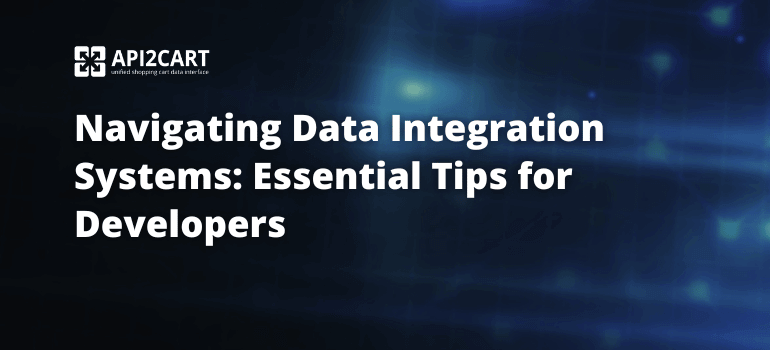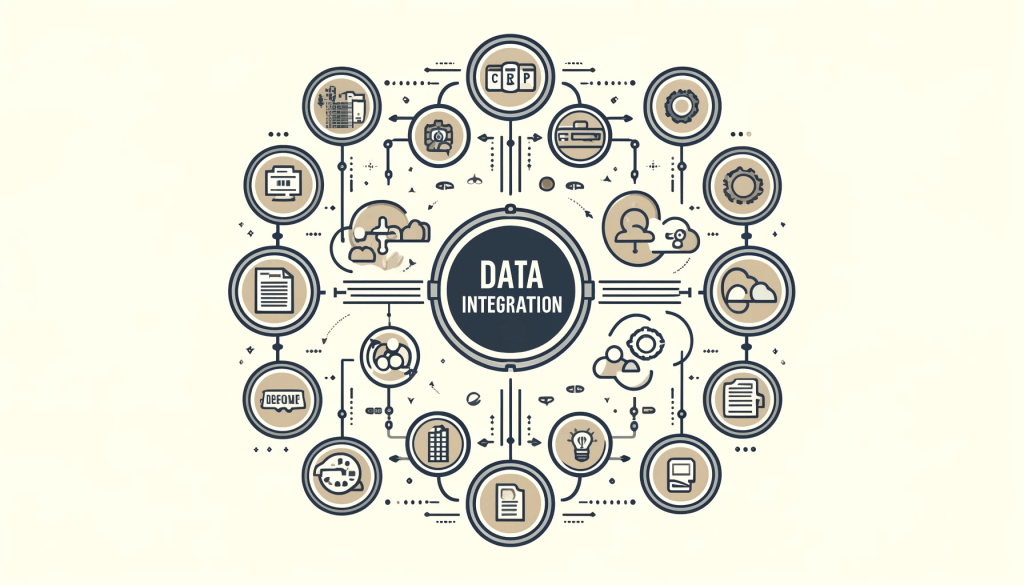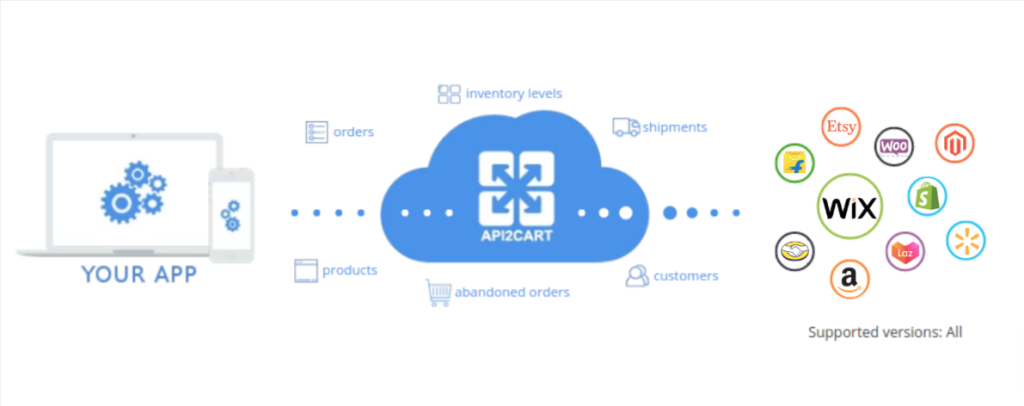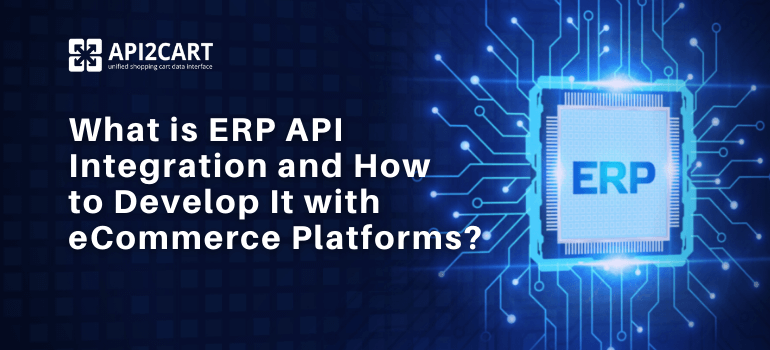
In the modern digital market, effective data management and analysis are key to the success of eCommerce. To developers deeply engaged in developing cutting-edge eCommerce software robust data integration systems are not an option, but a must. They are the core of digital commerce, integrating various data sources into a single manageable stream. This is the place where solutions such as API2Cart come into play, providing a point of synchronization in the tangled web of online retail data.
What is Data Integration?
Data integration is an important process, which unites data from a variety of sources in order to create a single view for users. In the scope of diverse software solutions, this practice becomes critical for guaranteeing that every application not only works with its own data but also shares and accesses data from other systems smoothly. The objective is to develop a unified data ecosystem in which details are harmonized and updated across systems.
Data integration is all about enabling communication between different software solutions, which often have different data structures and protocols. By means of a number of techniques such as ETL (extract, transform, load), middleware, and API integrations, data integration systems take data from one application, transform it into a compatible format, and load it to another application or a central database. This not only simplifies workflows but also eliminates the siloing of important data, which in turn allows information to be used in a more strategic way and allows software solutions to work together, rather than independently.
How Does Data Integration Systems Work?
In the software world, data integration is a complex operation, which makes different systems interact and work as a single entity. Fundamentally, it is a set of steps, in which data is extracted from different sources, like databases, cloud services, and applications, transformed into a compatible format and loaded into a target system. This ETL (Extract, Transform, Load) process is critical for making sure that all data, no matter its original form or the source, can be accessed and used in a coherent manner.

The real value of data integration is in making data flow smoothly and enabling advanced decision-making and strategic business intelligence. In real life, data integration tools use APIs, middleware, or direct database linking to enable the data exchange. This also covers the original set-up as well as the continual synchronization of data where changes in one system are mirrored on all integrated platforms.
The Example of Data Integration Tool Used In eCommerce
API2Cart is a good example of a data integration tool that is designed for the eCommerce industry. It is an integrated API that makes different eCommerce platforms to work with third-party software applications without any hitches. The solution allows developers to integrate their applications with over 40 shopping carts and marketplaces, such as Shopify, Magento, BigCommerce, and others, using a single interface. This connectivity makes many processes easy including importing orders, inventory sync, and product listings management to different sales channels.
The power of API2Cart is in the functionality of being able to cater to a myriad of eCommerce operations. For the developers, this tool provides the possibility for the automation of data requests and posting between the systems that can take the time of manual data entry and minimize the risk of errors. Inventory levels, customer details, orders, and shipping information can all be synchronized in real-time, like so that the data on all the platforms is uniform and up-to-data.

The service is secure since they use strong infrastructure and comply to the industry standards of protocols, thus, ensuring that all data transfers are encrypted and safe. With the increase in the size of the eCommerce software companies, the requirement for the reliable data integration concludes that the API2Cart is able to accommodate the growth of the business. Scalability makes it convenient for businesses of any size, either start-ups on the verge of expansion or large enterprises seeking reliability and efficiency, to adopt API2Cart to improve the functionality of their eCommerce solutions.
Conclusion
In summary, data integration systems are the essential vessels in which companies direct information flows and convert stand-alone data points into a harmony of viable insights.
Integration of many eCommerce platforms into a single, seamless process through solutions like API2Cart clearly indicates that these systems are the tools that businesses intending to succeed in an increasingly interconnected world should have in their armory.



